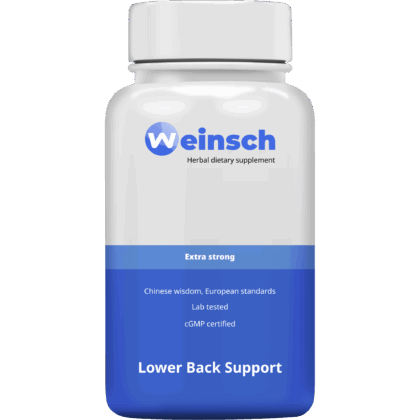Wu Jia Pi (Acanthopanax Schors) is een warm, bijtend kruid in de Traditionele Chinese Geneeskunde (TCM) dat bekend staat om het versterken van de pezen en botten, het verdrijven van wind-damp en het ondersteunen van de algehele vitaliteit. Het is afgeleid van de wortelschors van Acanthopanax gracilistylus en wordt al heel lang gebruikt om zwakte, pijn en stijfheid in de onderrug, knieën en gewrichten te behandelen. Wu Jia Pi is vooral geschikt voor ouderen of mensen die herstellen van een chronische ziekte, omdat het zowel de Lever en Nieren versterkt als de mobiliteit verbetert. Het wordt ook gewaardeerd voor het verminderen van oedeem en het bevorderen van urineren, waardoor het nuttig is in gevallen waar gewrichtspijn gepaard gaat met zwelling.
Functies en voordelen
Strengthens Sinews and BonesImproves mobility and stability in cases of chronic weakness, degeneration, or post-injury recovery affecting the lower back and knees.
Expels Wind-DampnessRelieves pain, stiffness, and heaviness in joints caused by wind-damp obstruction, particularly in cold, damp climates.
Promotes Urination and Reduces EdemaHelps alleviate swelling in the lower limbs, especially when accompanied by joint pain or weakness.
Supports Vitality and RecoveryTonifies the Liver and Kidneys, restoring energy and resilience in chronic musculoskeletal conditions.
Indications (Who Can Benefit from It?)✔ Elderly individuals with weakness and stiffness in the back, knees, or joints.✔ People with arthritis or rheumatic pain worsened by cold and damp weather.✔ Those recovering from chronic illness or injury affecting mobility.✔ Patients with joint pain accompanied by swelling and heaviness.
Tongue & Pulse Diagnosis in TCMTongue: Pale or slightly purple with a thin white coating, indicating deficiency with dampness.Pulse: Deep and weak or moderate, reflecting deficiency with damp obstruction.
Related TCM PatternsLiver and Kidney Deficiency – Leads to chronic weakness of the sinews and bones.Wind-Damp Bi Syndrome – Causes joint pain, stiffness, and heaviness.Edema from Dampness – Produces swelling in the lower limbs and reduced mobility.
Clinical Applications (For Reference Only)Arthritis and Joint Pain – Strengthens the body while relieving stiffness.Lower Back and Knee Weakness – Improves support and stability.Edema with Joint Pain – Reduces swelling and heaviness.Post-Illness Rehabilitation – Restores strength and mobility.
Common Herbal Formulas with Wu Jia PiOften combined with Du Zhong and Xu Duan for musculoskeletal weakness, or with Sang Ji Sheng and Niu Xi for chronic joint pain and stiffness.
Precautions & ContraindicationsAvoid in cases of Yin deficiency with heat signs.Not suitable for dry, hot joint pain without dampness.Use with caution during pregnancy.
Lifestyle & Dietary Recommendations✔ Eat warming, nourishing foods such as lamb, black beans, and walnuts.✔ Avoid excessive cold, raw, or greasy foods that contribute to dampness.✔ Engage in gentle exercise like walking or Tai Chi to keep joints flexible.✔ Protect the lower back and knees from exposure to cold and damp weather.
ConclusionWu Jia Pi (Acanthopanax Bark) is a warm, strengthening herb in TCM that supports the sinews and bones, dispels wind-dampness, reduces swelling, and promotes mobility. It is especially beneficial for elderly individuals, those with chronic musculoskeletal weakness, and joint pain with edema.
Gecertificeerde ingrediënten
Gratis verzending vanaf €49,95
Antwoord binnen 24 uur
Gecertificeerde ingrediënten
Gratis verzending vanaf €49,95
Antwoord binnen 24 uur

